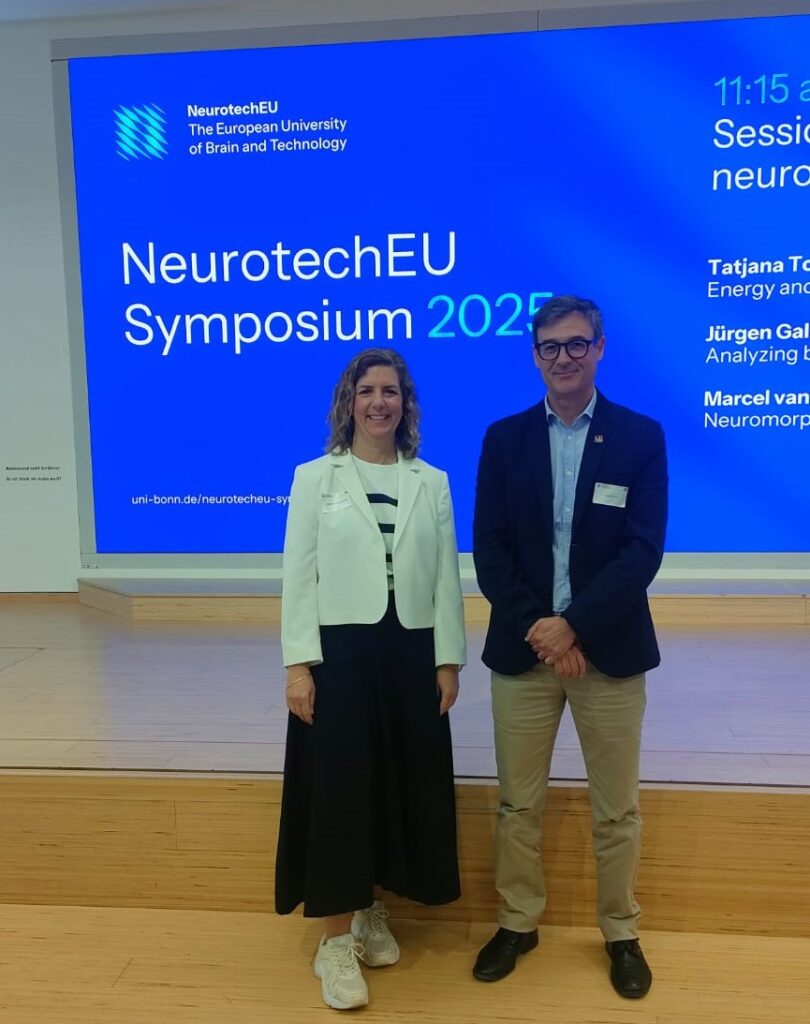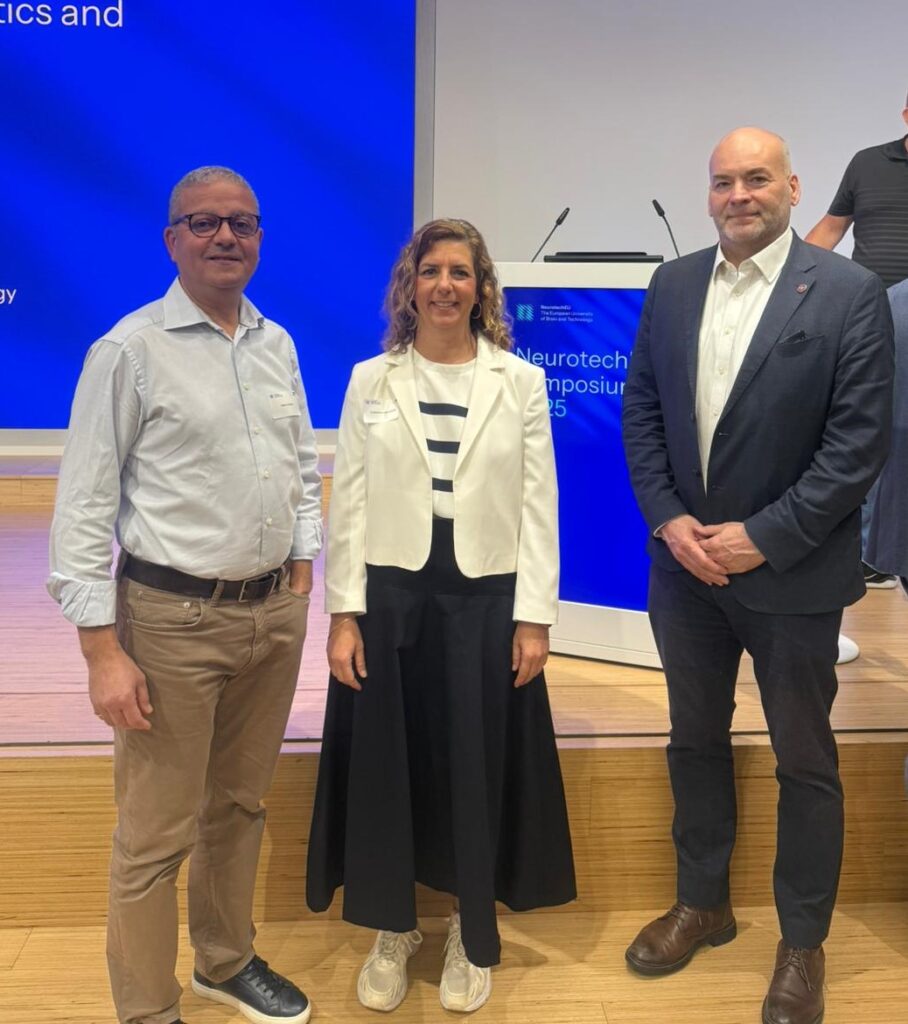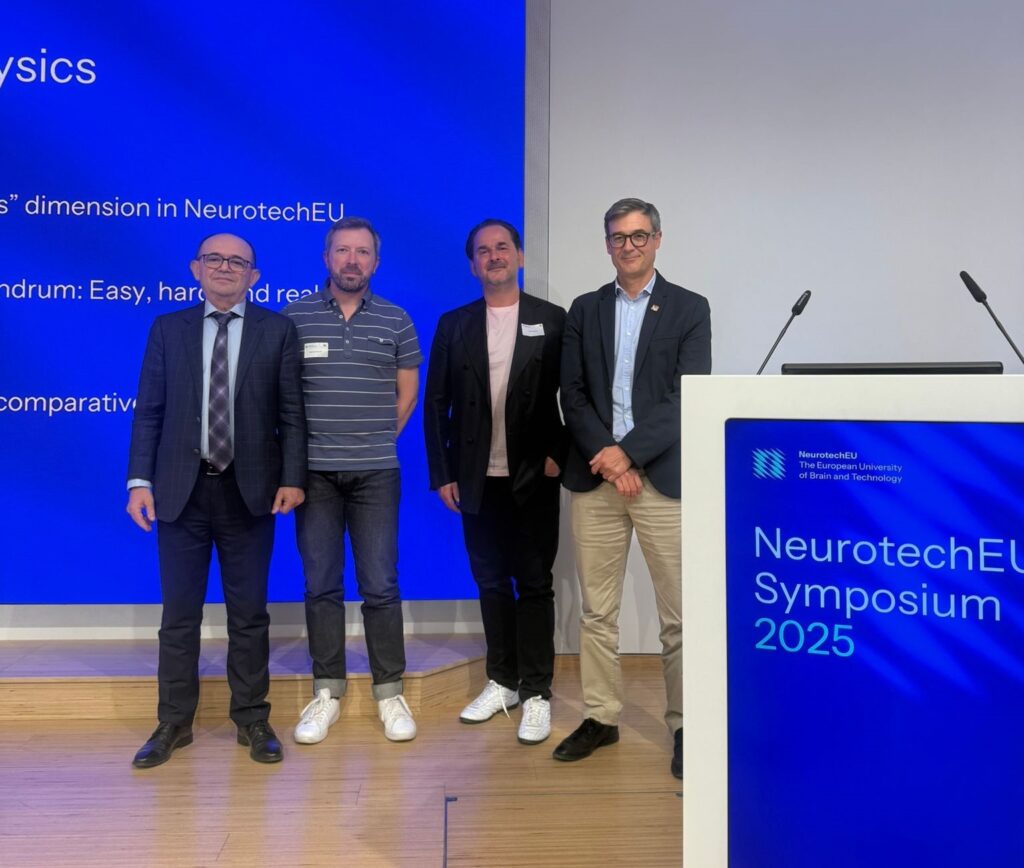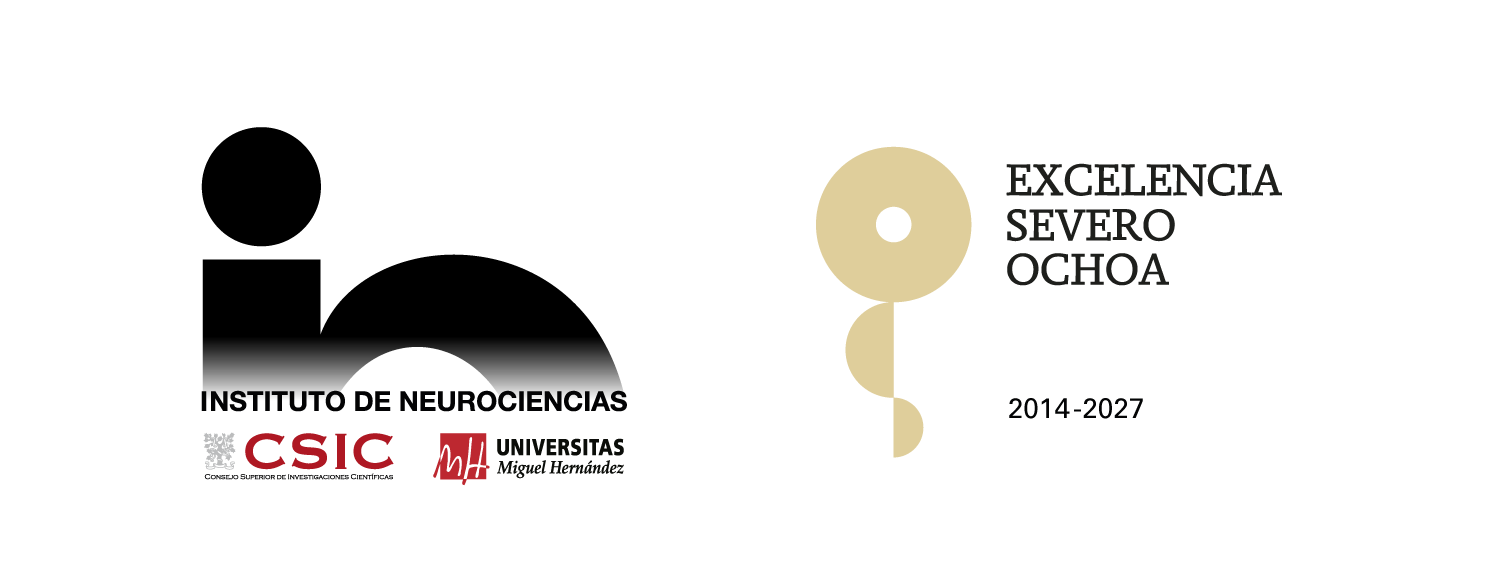The IN participates in the NeurotechEU Symposium: ‘Advancing Neurotechnology – Bridging Brains, Machines and Society’
14 de May de 2025
Yesterday, the ‘Advancing Neurotechnology - Bridging Brains, Machines and Society’ Symposium, organised by the University of Bonn (Germany) and the European University of Brain and Technology - NeurotechEU, took place. With the aim of creating a discussion space on neurotechnology and its various aspects, this event brought together a group of relevant scientists from the different member universities of the NeurotechEU Alliance.
The meeting featured presentations from two researchers from the University Miguel Hernández (UMH) of Elche. Under the title ‘Development of sensory circuits: the interaction between spontaneous activity and transcriptional programmes’, research professor and vice-director of the Institute for Neurosciences (IN), a joint centre of the UMH and the Spanish National Research Council (CSIC), Guillermina López-Bendito, participated in the Symposium. For his part, researcher at the Elche Institute for Research in Engineering (I3E-UMH) José María Azorín, participated with a presentation entitled ‘AI-powered brain-machine interfaces for neurorehabilitation with exoskeletons’.

Professors Guillermina López-Bendito and Jose María Azorín at the NeurotechEU Symposium: Advancing Neurotechnology - Bridging Brains, Machines and Society. Source: NeurotechEU
Along with López-Bendito, the first session of the symposium, entitled ‘Fundamental and clinical neuroscience’, was covered by Robert Harris from the Department of Clinical Neuroscience and Abdel el Manira from the Department of Neuroscience, both from the Karolinska Institutet. From her side, López-Bendito presented to the other member universities of NeurotechEU the work carried out in recent years in her Development, Plasticity and Reprogramming of Sensory Circuits laboratory, such as having developed mouse models to record spontaneous and evoked activity in neurons, the thalamus, and the cerebral cortex before birth. The researcher highlighted the need to continue developing technologies to study in greater depth and detail the processes that take place in the early stages of the development of sensory circuits. For example, she proposes the use of AI to establish correlations between the electrical activity of neurons and the set of genes that are expressed at different times throughout the development and maturation of the brain.

From left to right: professors Abdel el Manira, Guillermina López-Bendito, and Robert Harris. Source: NeurotechEU
Jose María Azorín was part of the third session of the symposium, entitled ‘Neurotechnology for health. Under the title ‘AI-powered brain-machine interfaces for neurorehabilitation with exoskeletons’, Azorín explained how the exoskeleton can be used as a Brain-Machine Interface (BMI) for neurorehabilitation. The idea is to create a model that, by recording electroencephalographic signals, detects the user's intention to start or stop walking and that, until further notice, maintains the current state. In this way, the subject can walk without paying constant attention until the electroencephalogram detects a new 'relax' intention. Alongside him, this third session of the symposium was given by Dafin Muresanu from the Department of Neurosciences at the Iuliu Hatieganu University of Medicine and Pharmacy in Cluj-Napoca; Jeremie Dequidt, from the CRIStAL-Research Centre in Computer Science at the University of Lille; and Paolo Gargiulo, from the Institute of Biomedical and Neural Engineering at the University of Reykjavik.

From left to right: professors Dafin Muresanu, Jeremie Dequidt, Jose María Azorín, and Paolo Gargiulo. Source: NeurotechEU
The European NeurotechEU alliance aims to provide the scientific community with a centre for higher education and research focused on neurotechnology, to solve health problems related to neuroscience and mental health through frontier technologies. In addition to the UMH, the NeurotechEU alliance is made up of seven other universities: Radboud University (Netherlands), the Karolinska Institutet (Sweden), the University of Bonn (Germany), Boğaziçi University (Turkey), Iuliu Hatieganu University of Medicine and Pharmacy in Cluj-Napoca (Romania), the University of Lille (France) and the University of Reykjavik (Iceland).
Source: NeurotechEU (jsantacreu@umh.es) / Institute for Neurosciences CSIC-UMH (in.comunicacion@umh.es)

 Español
Español